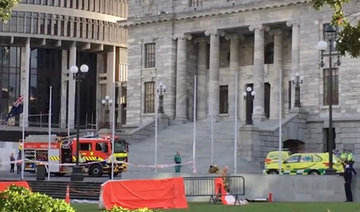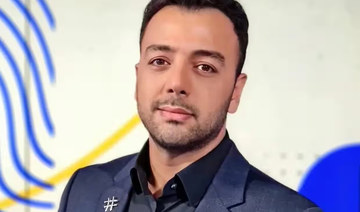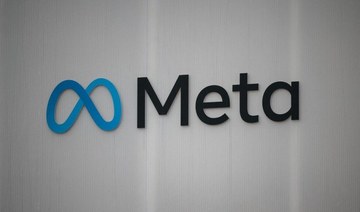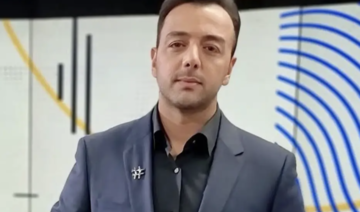WASHINGOTN — A civil rights group is suing Facebook and its executives, saying CEO Mark Zuckerberg made “false and deceptive” statements to Congress.
Zuckerberg told Congress the giant social network removes hate speech and other material that violates its rules.
The lawsuit, filed by Muslim Advocates in Washington, Superior Court on Thursday, claims Zuckerberg and other senior executives “have engaged in a coordinated campaign to convince the public, elected representatives, federal officials, and non-profit leaders in the nation’s capital that Facebook is a safe product.”
Facebook, the lawsuit alleges, has been repeatedly alerted to hate speech and calls to violence on its platform and done nothing or very little.
Making false and deceptive statements about removing hateful and harmful content violates the District of Columbia’s consumer-protection law and its bar on fraud, the lawsuit says.
“Every day, ordinary people are bombarded with harmful content in violation of Facebook’s own policies on hate speech, bullying, harassment, dangerous organizations, and violence,” the lawsuit says. “Hateful, anti-Muslim attacks are especially pervasive on Facebook.”
In a statement, Facebook said it does not allow hate speech on its platform and said it regularly works with “experts, non-profits, and stakeholders to help make sure Facebook is a safe place for everyone, recognizing anti-Muslim rhetoric can take different forms.
The company based in Menlo Park, California, said it has invested in artificial intelligence technologies aimed at removing hate speech and proactively detects 97% of what it removes.
Facebook declined to comment beyond the statement, which did not address the lawsuit’s allegations that it has not removed hate speech and anti-Muslim networks from its platform even after it was notified of their existence.
The plaintiffs seek a jury trial and damages of $1,500 per violation.
For example, the lawsuit cites research by Elon University professor Megan Squire, who published research about anti-Muslim groups on Facebook and alerted the company.
According to the lawsuit, Facebook did not remove the groups — but it did change how outside academics can access its platform so that the kind of research Squire did would be “impossible other than if done by Facebook employees.”
Facebook’s hate speech policy prohibits targeting a person or group with “dehumanizing speech or imagery,” calls for violence, references to subhumanity and inferiority as well as generalizations that state inferiority.
The policy applies to attacks on the basis of race, religion, national origin, disability, religious affiliation, caste, sexual orientation, sex, gender identity and serious disease.
But in one example from April 25, 2018, Squire reported to Facebook a group called “Purge Worldwide,” according to the lawsuit. The group’s description reads: “This is an anti-Islamic group A Place to share information about what is happening in your part of the world.”
Facebook responded that it would not remove the group or the content. The lawsuit cites other examples of groups with names like “Death to Murdering Islamic Muslim Cult Members” and “Filth of Islam” that Facebook did not remove despite being notified, even though Facebook policy prohibits “reference or comparison to filth” on the basis of religion. In the latter case Facebook did remove some posts from the group, but not the group itself.
The lawsuit also cites an exception Facebook made to its policy for former President Donald Trump, for whom Facebook made an exception to its rules when he posted as a candidate in 2016 about banning all Muslims from entering the US
Zuckerberg and other social media executives have repeatedly testified before Congress about how they combat extremism, hate and misinformation on their platforms. Zuckerberg told the House Energy and Commerce Committee that the issue is “nuanced.”
Muslim civil rights group sues Facebook over hate speech
https://arab.news/8cyvt
Muslim civil rights group sues Facebook over hate speech
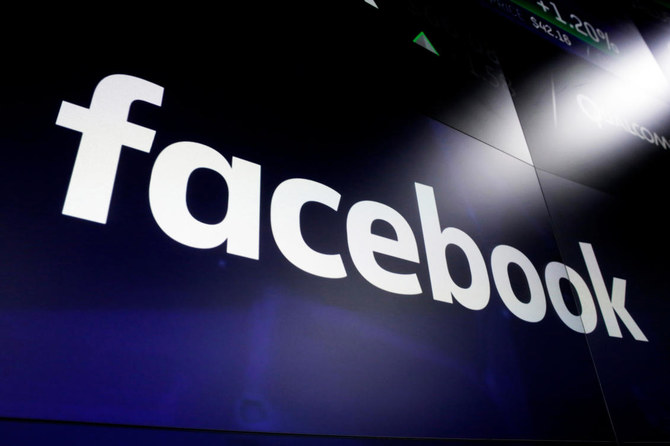
- Lawsuit alleges Facebook was repeatedly alerted to hate speech and calls to violence on its platform and done nothing or very little
- “Hateful, anti-Muslim attacks are especially pervasive on Facebook” says lawsuit
Live video of man who set himself on fire outside court proves challenging for news organizations
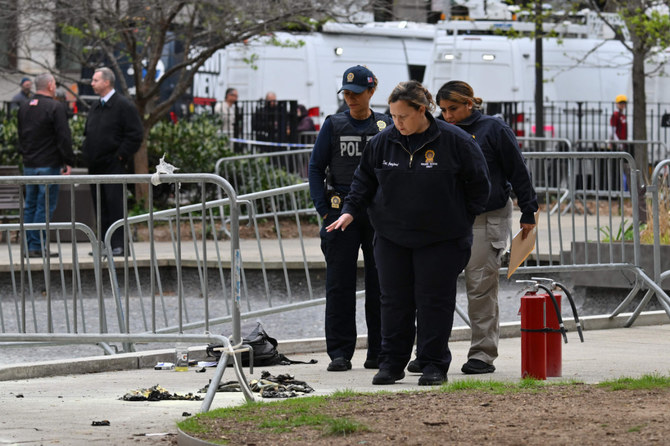
- The man, who distributed pamphlets before dousing himself in an accelerant and setting himself on fire, was in critical condition
- The incident tested how quickly the networks could react, and how they decided what would be too disturbing for their viewers to see
NEW YORK: Video cameras stationed outside the Manhattan courthouse where former President Donald Trump is on trial caught the gruesome scene Friday of a man who lit himself on fire and the aftermath as authorities tried to rescue him.
CNN, Fox News Channel and MSNBC were all on the air with reporters talking about the seating of a jury when the incident happened and other news agencies, including The Associated Press, were livestreaming from outside the courthouse. The man, who distributed pamphlets before dousing himself in an accelerant and setting himself on fire, was in critical condition.
The incident tested how quickly the networks could react, and how they decided what would be too disturbing for their viewers to see.
With narration from Laura Coates, CNN had the most extensive view of the scene. Coates, who at first incorrectly said it was a shooting situation, then narrated as the man was visible onscreen, enveloped in flames.
“You can smell burning flesh,” Coates, an anchor and CNN’s chief legal analyst, said as she stood at the scene with reporter Evan Perez.
The camera switched back and forth between Coates and what was happening in the park. Five minutes after the incident started, CNN posted the onscreen message “Warning: Graphic Content.”
Coates later said she couldn’t “overstate the emotional response of watching a human being engulfed in flames and to watch his body be lifted into a gurney.” She described it as an “emotional and unbelievably disturbing moment here.”
Fox’s cameras caught the scene briefly as reporter Eric Shawn talked, then the network switched to a courtroom sketch of Trump on trial.
“We deeply apologize for what has happened,” Shawn said.
On MSNBC, reporter Yasmin Vossoughian narrated the scene. The network showed smoke in the park, but no picture where the body was visible.
“I could see the outline of his body inside the flames,” Vossoughian said, “which was so terrifying to see. As he went to the ground his knees hit the ground first.”
The AP had a camera with an unnarrated live shot stationed outside the courthouse, shown on YouTube and APNews.com. The cameras caught an extensive view, with the man lighting himself afire and later writhing on the ground before a police officer tried to douse the flames with a jacket.
The AP later removed its live feed from its YouTube channel and replaced it with a new one because of the graphic nature of the content.
The news agency distributed carefully edited clips to its video clients — not showing the moment the man lit himself on fire, for example, said executive producer Tom Williams.
Russian war correspondent for Izvestia killed in Ukraine

- Izvestia said Semyon Eremin, 42, died of wounds from a drone attack in Zaporizhzhia region
- Eremin had reported for the Russian daily from hottest battles in Ukraine during the 25-month-old war
Semyon Eremin, a war correspondent for the Russian daily Izvestia, was killed on Friday in a drone attack in southeastern Ukraine, the daily said.
Izvestia said Eremin, 42, died of wounds suffered when a drone made a second pass over the area where he was reporting in Zaporizhzhia region.
Izvestia said Eremin had sent reports from many of the hottest battles in Ukraine’s eastern regions during the 25-month-old war, including Mariupol, besieged by Russian troops for nearly three months in 2022.
He had also reported from Maryinka and Vuhledar, towns at the center of many months of heavy fighting.
WhatsApp being used to target Palestinians through Israel’s Lavender AI system
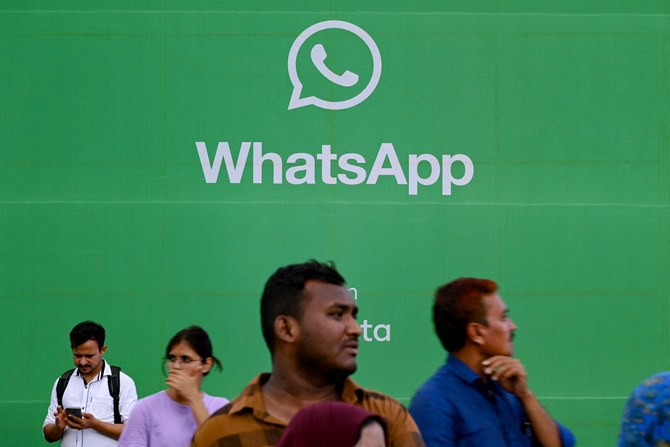
- Targets’ selection based on membership to some WhatsApp groups, new report reveals
- Accusation raises questions about app’s privacy and encryption claims
LONDON: WhatsApp is allegedly being used to target Palestinians through Israel’s contentious artificial intelligence system, Lavender, which has been linked to the deaths of Palestinian civilians in Gaza, recent reports have revealed.
Earlier this month, Israeli-Palestinian publication +972 Magazine and Hebrew-language outlet Local Call published a report by journalist Yuval Abraham, exposing the Israeli army’s use of an AI system capable of identifying targets associated with Hamas or Palestinian Islamic Jihad.
This revelation, corroborated by six Israeli intelligence officers involved in the project, has sparked international outrage, as it suggested Lavender has been used by the military to target and eliminate suspected militants, often resulting in civilian casualties.
In a recent blog post, software engineer and activist Paul Biggar highlighted Lavender’s reliance on WhatsApp.
He pointed out how membership in a WhatsApp group containing a suspected militant can influence Lavender’s identification process, highlighting the pivotal role messaging platforms play in supporting AI targeting systems like Lavender.
“A little-discussed detail in the Lavender AI article is that Israel is killing people based on being in the same WhatsApp group as a suspected militant,” Bigger wrote. “There’s a lot wrong with this.”
He explained that users often find themselves in groups with strangers or acquaintances.
A lot of difficult questions for Meta before that trust can be rebuilt, and I don't honestly believe that Meta can or will answer them pic.twitter.com/vaeLbg9hx3
— Paul Biggar (@paulbiggar) April 16, 2024
Biggar also suggested that WhatsApp’s parent company, Meta, may be complicit, whether knowingly or unknowingly, in these operations.
He accused Meta of potentially violating international humanitarian law and its own commitments to human rights, raising questions about the privacy and encryption claims of WhatsApp’s messaging service.
The revelation is just the latest of Meta’s perceived attempts to silence pro-Palestinian voices.
Since before the beginning of the conflict, the Menlo Park giant has faced accusations of double standards favoring Israel.
In February, the Guardian revealed that Meta was considering the expansion of its hate speech policy to the term “Zionist.”
More recently, Meta quietly introduced a new feature on Instagram that automatically limits users’ exposure to what it deems “political” content, a decision criticized by experts as a means of systematically censoring pro-Palestinian content.
Responding to requests for comment, a WhatsApp spokesperson said that the company could not verify the accuracy of the report but assured that “WhatsApp has no backdoors and does not provide bulk information to any government.”
Eastern European mercenaries suspected of attacking Iranian journalist Pouria Zeraati
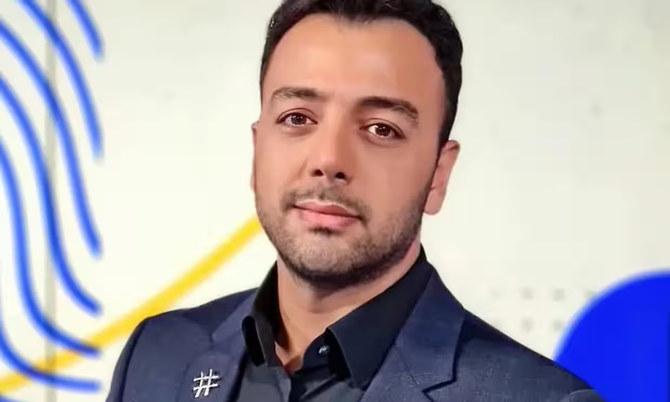
- UK security services believe criminal proxies with links to Tehran carried out London knife attack
LONDON: Police said on Friday that a group of Eastern European mercenaries is suspected to have carried out the knife attack on Iranian journalist Pouria Zeraati in late March.
Zeraati was stabbed repeatedly by three men in an attack outside his south London home.
The Iran International presenter lost a significant amount of blood and was hospitalized for several days. He has since returned to work, but is now living in a secure location.
Iran International and its staff have faced repeated threats, believed to be linked to the Iranian regime, which designated the broadcaster as a terrorist organization for its coverage of the 2022 protests.
Iran’s charge d’affaires, Seyed Mehdi Hosseini Matin, denied any government involvement in the attack on Zeraati.
Investigators revealed that the suspects fled the UK immediately after the incident, with reports suggesting they traveled to Heathrow Airport before boarding commercial flights to different destinations.
Police are pursuing leads in Albania as part of their investigation.
Counterterrorism units and Britain’s security services leading the inquiry believe that the attack is another instance of the Iranian regime employing criminal proxies to target its critics on foreign soil.
This method allows Tehran to maintain plausible deniability and avoids raising suspicions when suspects enter the country.
Zeraati was attacked on March 29 as he left his home home to travel to work. His weekly show serves as a source of impartial and uncensored news for many Iranians at home and abroad.
In an interview with BBC Radio 4’s “Today” program this week, Zeraati said that while he is physically “much better,” mental recovery from the assault “will take time.”
Court orders release of prominent Palestinian professor suspected of incitement
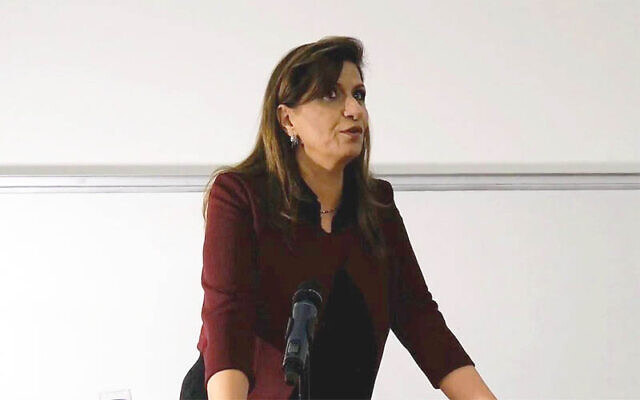
- Nadera Shalhoub-Kevorkian was under investigation after questioning Hamas atrocities, criticizing Israel
- Insufficient justification for arrest, says court
- Detention part of a broader campaign, says lawyer
LONDON: The prominent Hebrew University of Jerusalem professor, Nadera Shalhoub-Kevorkian, was released on Friday after a court order rejected police findings.
The criminologist and law professor was arrested the previous day on suspicion of incitement. She had been under investigation for remarks regarding the Oct. 7 attacks by Hamas and for saying Israelis were committing “genocidal crimes” in the Gaza Strip and should fear the consequences.
On Friday, the court dismissed a police request to extend her remand, citing insufficient justification for the arrest, according to Hebrew media reports.
Protesters gathered outside the courthouse to demonstrate against Shalhoub-Kevorkian’s arrest.
Israeli Channel 12, which first reported the news, did not specify where Shalhoub was arrested but her lawyer later confirmed she was apprehended at her home in the Armenian Quarter of Jerusalem.
“She’s not been in good health recently and was arrested in her home,” Alaa Mahajna said. “Police searched the house and seized her computer and cellphone, [Palestinian] poetry books and work-related papers.”
Mahajna described Shalhoub-Kevorkian’s arrest as part of a broader campaign against her, which has included numerous threats to her life and of violence.
The professor was suspended by her university last month after calling for the abolition of Zionism and suggesting that accounts of sexual assault during the Hamas-led attacks on Israel were fabricated.
The suspension was initially criticized by the university community as a blow to academic freedom in Israel. However, the decision was later reversed following an apology from Shalhoub-Kevorkian and an admission that sexual assaults took place.
Since hostilities began last year, numerous dissenting voices in Israel have faced arrest for expressing solidarity with victims of the bombardment in Gaza.
In October, well-known ultra-Orthodox Israeli journalist Israel Frey was forced into hiding following a violent attack on his home.
Bayan Khateeb, a student at the Technion-Israel Institute of Technology, was arrested last year for incitement after posting an Instagram story showing the preparation of a popular spicy egg dish with the caption: “We will soon be eating the victory shakshuka.”







